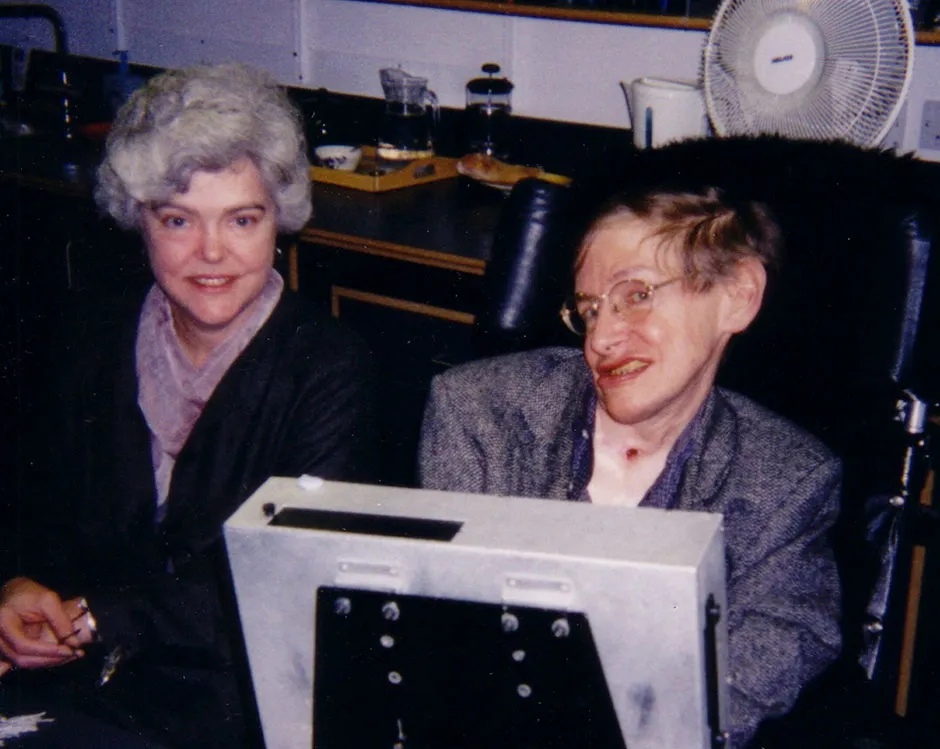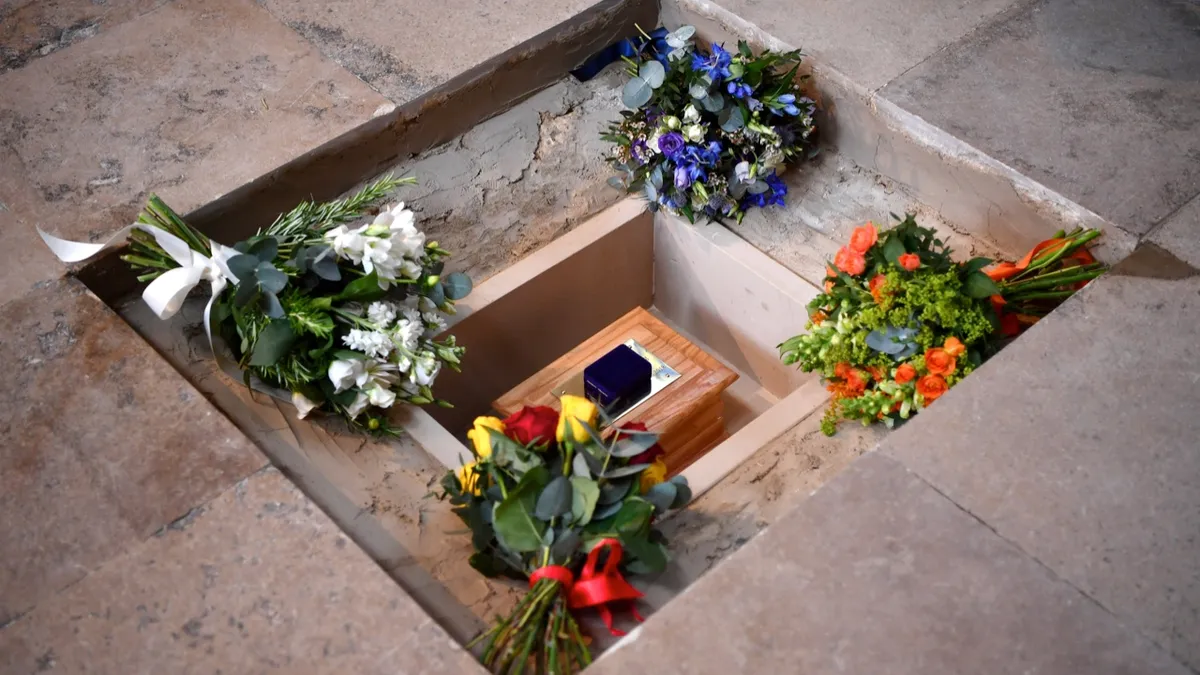When Stephen Hawking died in March 2018, friends, colleagues, and others who knew him only by reputation celebrated his towering achievements in the face of devastating disability. Some spoke of ‘bloody-minded courage’.
One of his closest friends, American physicist Kip Thorne, in a tribute at the interment of Hawking’s ashes in Westminster Abbey (15 June 2018), called him "The stubbornest man I have ever met".
Hawking’s first biographer John Boslough had used similar words in 1985, "the toughest man I have ever met."
Stephen Hawking didn’t argue with ‘tough’ or ‘stubborn’, but when he was called ‘courageous’, he objected.
Read more about Stephen Hawking:
- Stephen Hawking's final farewell
- Stephen Hawking (1942-2018): the theoretical physicist's life in pictures
Yes, it would have been ridiculously courageous and required tremendous willpower back in 1963, when he was a first-year graduate student at Cambridge, to have chosen deliberately to contract motor neuron disease, face probable death within two years, or, as it happened, live out his life locked motionless in a wheelchair, choosing words to write or speak one by one with a tiny movement of his finger and later with his cheek muscle.
It wasn’t courage, he insisted. "Did I have a choice?" He just got on with life, doing, as he said, "the only thing possible".
The ‘only thing possible’ for Hawking would include, over a passage of many years, such matters as waking each morning helpless in his bed to be sat up and dressed and fed by a staff of carers, positioned carefully in his wheelchair, hands folded in his lap, then ‘going into work’ (as he put it) at his office in Cambridge, even when he was feeling unwell.
The ‘only thing possible’ was to mentor his gifted graduate students, confer and argue with colleagues around the world, think in brilliantly innovative ways about scientific issues at the frontiers of his field, generate theories and questions that would make him one of the most influential physicists of the 20th and early 21st centuries, write books and documentaries that inspired a generation of scientists and non-scientists, travel the globe giving lectures to huge and wildly enthusiastic audiences, and powerfully demonstrate that ‘disabled’ need not mean ‘defeat’.

This was, indeed, a man of indomitable will power, tough, stubborn, able to ‘run the show’ from a position of complete helplessness. Although Hawking denied having 'courage’, he in fact defined ‘courage’ for us: simply getting on with life, doing what one can, keeping on.
However, there was so much more than that. Stephen Hawking did ‘the only thing possible’ with abundant joy. As I have described in my biographies of him, his slack face would frequently break into "a smile that could light the Universe".
It was that joy, that keen pleasure in exploring the unknown, that he tried to convey to his readers and those who watched his television documentaries. I remember him saying, "The wonderful thing about the unknown is that it is unknown!" The science he did was "fun" – a ripping adventure. "It’s hardly fair to call it work," he quipped.
It was that spirit of ‘fun’ that he urged me to put in my own books when I first met him in the late 1980s. I was stuck writing what was turning out to be a somewhat humourless children’s book about black holes, and he told me that my editor must allow me to make it ‘fun’. His ‘Tell him I said so,’ won that battle for me.
He later teased me when I was trying to help him (at his request) to make his book Universe in a Nutshell more easily understandable, by wryly commenting "It seems perfectly clear to me."
And it wasn’t only in his writing (and mine) and in his science that he insisted on fun. "Life would be tragic if it weren’t funny," he was fond of repeating.
His humour could have an edge. Late in his life, not well-pleased with the word prediction program his computer was using, he allowed that program free reign to utter loud non-sequiturs at a banquet where he was dining with those who had developed the program.
In a small workshop meeting in his department at Cambridge led by an eminent guest lecturer (a good friend of his), his only comment at the close was to repeat the question with which the lecturer had begun the session and that he had been trying to answer.

The last party I attended at his home had us all out in the street by his house, dressed (himself included) as ‘celestial objects’, fireworks delayed while he lectured us about there being "no boundaries to human endeavour".
Was he right? Are there no boundaries to human endeavour?
What many regarded as his deep pessimism about the future of human beings on this planet – his campaigns on behalf of the environment, his urging us to colonise other planets as soon as possible to save ourselves as life on Earth becomes untenable... wasn’t all of that really a different sort of optimism? Don’t give up? Don’t lose these battles? Do what is possible?
All that said, wasn’t Stephen Hawking actually the master of doing the impossible? If so, it seems he expected the same from the rest of us – facing whatever we have to face with grit and creativity.
Read more about great physicists:
- Alan Turing’s legacy should be for his triumphs, rather than his tragedy
- Lise Meitner: the nuclear pioneer who escaped the Nazis
- Cecilia Payne-Gaposchkin: the first to describe what stars are made of
Perhaps his greatest gift to us was not his science, his Hawking radiation (the equation is on his tombstone), or his pioneering ideas and questions that many of his colleagues will be pondering for generations to come.
Perhaps that gift was to help us all to be less afraid for ourselves and those we love, less discouraged by any seemingly hopeless situation we might fear or find ourselves in. He resoundingly demonstrated that remarkable achievements and a wonderful life don’t happen only when all seems well, we are healthy, the sun is shining, and no possible disaster is looming on the horizon.
Hawking said that, after his diagnosis with motor neuron disease at age 21, "everything from then on is a bonus".
"When your expectations are reduced to zero, you really appreciate everything you do have. However difficult life may become, there is always something you can do and succeed at. I just did ‘the only thing possible’." And he enjoyed doing it.
Stephen Hawking: Remarkable Lives by Kitty Ferguson is out now (£6, Pitkin).